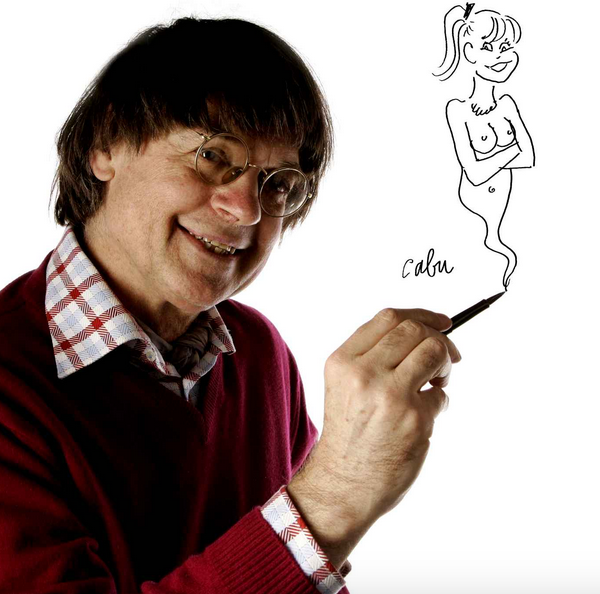In 2006, the satirical weekly magazine Charlie Hebdo decided to republish the cartoons of the Danish newspaper Jilland-Posten, which caused a wave of violence because of the depiction of the prophet Muhammad that was deemed blasphemous. The cover of that issue was designed by Jean Cabut, better known as Cabu, and showed a despairing Muhammad sitting with his head in his hands weeping and saying: “C’est dur d’être aimé par des cons” (It’s hard being loved by jerks).
On 7 January 2015, the newsroom of Charlie Hebdo was attacked. Cabu and 11 others, including cartoonists Charb, Tignous and Wolinski, lost their lives.
Charlie Hebdo is a magazine known for a proud creative anarchy, ready to challenge symbols and demolish beliefs, determined to defend the freedom of expression of its European colleagues and all cartoonists. The choice of the publication of the Danish cartoons, and specifically the one of the cover, was not accidental.
Cabu perfectly represented the anti-conformist, anti-religious, anti-militarist, irreverent soul of the magazine. He signed the front page which, to quote the words of Florence Martin-Kessler of Nieman Reports, would become a mad and bitter “countdown to the murders.”
On that very day, while the newsroom gathered around the table to look for ideas and propose sketches, film-makers Jerome Lambért and Philippe Picard were shooting the documentary Cabu, politiquement incorrect!, recording almost involuntarily a piece of contemporary history.
The cartoon takes shape under the gaze of the camera, simply and naturally. A creative process that takes no account of what will be the consequences of the free expression of thought and satire, despite the precise perception of the fact that those “puppets,” as defined by the friend and colleague Luz, will cost them a more or less guarded freedom, the assignment of bodyguards, the arrival of threats in various forms.
To commemorate the victims of the attack on Charlie Hebdo, the International Journalism Festival will screen Cabu, politiquement incorrect!, in the presence of its co-directors Jérome Lambert and Philippe Picard.


